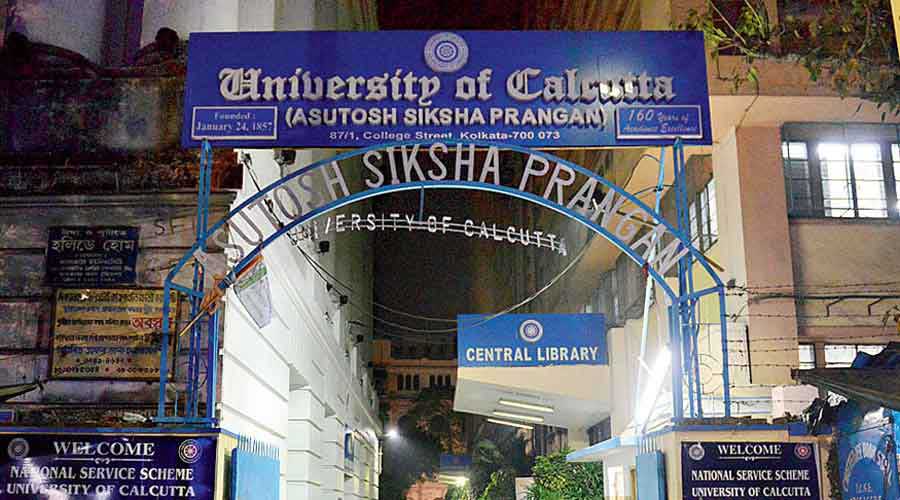An engineering aspirant intending to take part in the decentralised counselling for admission to a BTech seat under Calcutta University has to be domiciled in Bengal.
CU introduced the condition in the notification issued on Wednesday announcing counselling for 89 of the 237 BTech seats that have remained vacant after centralised counselling by the JEE board.
The notification signed by Amit Roy, the secretary of the faculty council of engineering and technology, says: “Participating candidates must be domicile of West Bengal. Domicile of other states shall not be eligible.”
A CU official said the university had not set any such condition in the centralised counselling. But from the time Jadavpur University had introduced the domicile clause last year for admission to BTech courses, CU had been under pressure from a section of teachers and students to do the same.
Submission of online applications for admission started on December 16 and will go on till December 21. Candidates whose names figure on the state JEE merit list will be admitted in order of merit.
A member of the CU’s faculty council for engineering and technology faculty said the criteria that need to be fulfilled to become eligible for domicile quota seats would be the same as what was spelt out in the information bulletin of JEE 2019.
“Only those candidates will be treated as domicile of West Bengal who are either, a) residing in West Bengal continuously for at least for 10 (ten) years as on 31.12.2018; b) whose parent (s)is/ are permanent resident(s) of West Bengal having permanent addresses within the State of West Bengal,’’ the rules read.
The four-year BTech programme was introduced at CU in 2015.
Until 2019, the engineering seats for students in the state-funded university were open for students from all states.
What triggered the move for home quota?
“The rationale for the reservation is that students from Bengal were being outnumbered by candidates from other states in engineering courses. The same rationale was cited while introducing the quota in JU last year,’’ said an official of CU.
When asked why the university did not introduce the domicile clause when the JEE board had started centralised counselling in August, the official said another section of teachers opposed the domicile quota on the ground that an established university should not be shutting its doors on deserving students in the name of reservation.
“A domicile quota in my opinion will erode the institute’s regional diversity, which is an extension of a university’s inclusiveness,” said a teacher of computer science and engineering known for his opposition to reservation.
Sources said the higher education department sought to know from CU in August whether the university had introduced the domicile quota at the time of centralised counselling.
“The university could not resist the pressure anymore and settled for the domicile quota months before the Assembly elections. The department had overruled legal constraints cited by the JEE board in implementing the domicile policy for engineering courses at Jadavpur University from 2019,’’ said another teacher.
Sources on the campus said the dean of engineering and technology faculty council has convened a meeting on December 22 with the heads of the departments and on agenda is how to introduce the domicile quota during the centralised counselling in 2021.
The notification says the dates of counselling for the 89 vacant seats will be announced later.
CU’s vacancy figure last year was 50.











